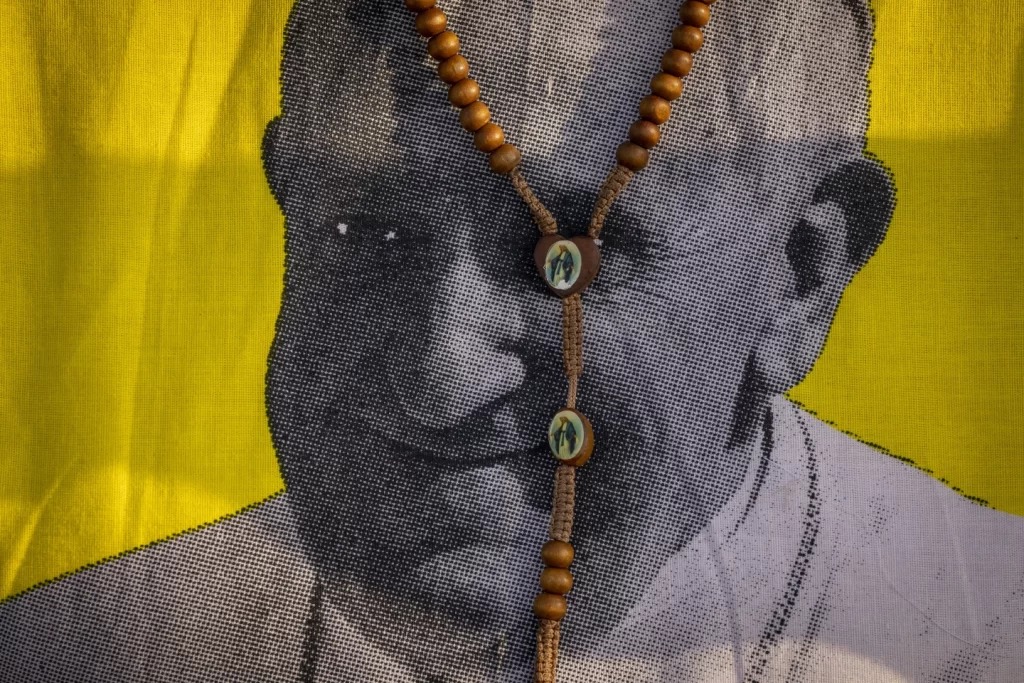
CAPE TOWN, South Africa — In an extraordinary pushback against Pope Francis, some Catholic bishops in Africa, Poland and elsewhere say they will not implement the new Vatican policy allowing blessings for same-sex couples.
Others downplayed the policy approved this week by Francis as merely reaffirming the Vatican’s long-standing teaching about marriage being only a union between a man and a woman.
The reactions show how polarizing the issue remains and how Francis’ decade-long effort to make the church a more welcoming place for the LGBTQ+ community continues to spark resistance among traditionalist and conservative Catholic leaders.
Some of the strongest responses came from bishops in Africa, home to 265 million Catholics, or nearly a quarter of the world’s 1.3 billion Catholics. Many of those Catholics live and their churches operate in societies where homosexuality is condemned and outlawed.
Out of the continent’s 54 countries, 31 have laws criminalizing homosexuality, more than any other continent, according to the Human Dignity Trust, which defends LGBTQ+ rights.
Zambia’s bishops conference said same-sex couple blessings were “not for implementation in Zambia.” The bishops conference of Malawi said “blessings of any kind” for “same-sex unions of any kind” would not be permitted.
In Zambia, gay sex is punishable by between 15 years and life in prison and the law puts it in the same section as bestiality. Malawi’s laws call for up to 14 years in prison for homosexual sex, with the option of corporal punishment for those convicted.
Zambian bishops said there should be “further reflection” on the blessings and cited the country’s laws against homosexuality and its “cultural heritage” that rejects same-sex relationships as reasons for its decision.
The Polish bishops conference — among the most conservative in Europe and a reference point beyond the continent given its ties to St. John Paul II — said it has no plans to give blessings to same-sex couples.
Marriage, the conference asserted, remains only the union between a man and a woman, and sexual acts outside of that are “always an offense against God’s will,” according to a statement by spokesperson Rev. Leszek Gęsiak.
It is unusual for an entire national bishops conference to publicly voice dissent of a Vatican policy, though the declaration from the Vatican doctrine office did not instruct bishops to allow blessings of same-sex couples but merely provided guidance on how they could be done if people requested them.
The document, entitled “Fiducia Supplicans,” says that blessings can be offered to people in same-sex relationships if they are not confused with the ritual of marriage and reaffirmed that marriage is a lifelong union only between a man and a woman.
The announcement Monday by the Vatican office reversed its 2021 statement that had ruled out blessings for same-sex couples because God “cannot bless sin.”
The U.S. bishops conference, seeking to downplay any shift, stressed that the church’s teachings on marriage have not changed and that the announcement “articulated a distinction between liturgical (sacramental) blessings, and pastoral blessings, which may be given to persons who desire God’s loving grace in their lives,” according to a statement.
Some of the more piqued opposition came from Francis’ usual critics.
German Cardinal Gerhard Müller, who previously headed the Vatican doctrine office, said the declaration was “self-contradictory” as it still said same-sex relationships were contrary to God’s law while allowing same-sex couples to receive a blessing.
“The church cannot celebrate one thing and teach another,” Müller wrote in an essay published in religious media outlets.
Kazakh Bishop Athanasius Schneider, who has long opposed Francis’ progressive bent, called the new policy a “great deception.” Priests should be aware of “the evil that resides in the very permission to bless couples in irregular situations and same-sex couples,” he said.



